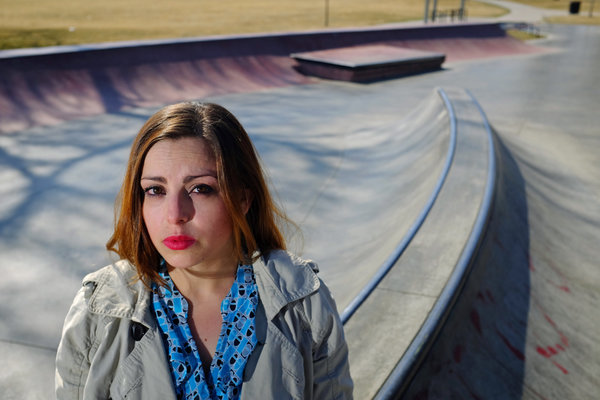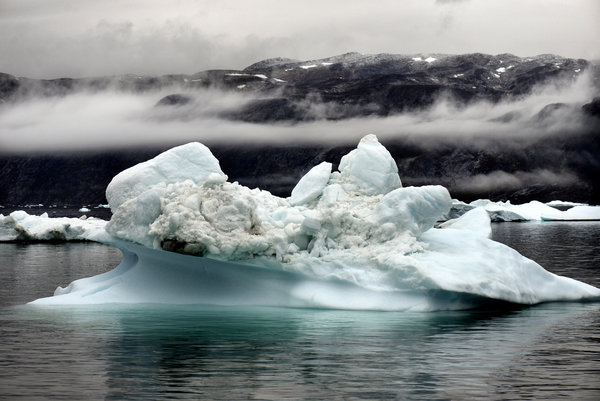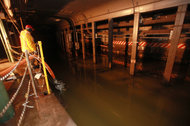AURORA, Colo. — As the weather warms, Lizeth Chacon is anticipating a new season of registering Latino voters — yet dreading experiences like one late last year, when she came upon a skate park full of older teenagers.
“I thought, ‘The perfect age! They’re turning 18,’ ” said Ms. Chacon, just 26 herself, born in Mexico and now the lead organizer at Rights for All People, a local immigrant organizing group. But among the roughly 50 people she approached in this increasingly diverse city east of Denver, “not a single person” was interested in her pitch, including those already old enough to vote: “They were like, ‘Why? Why would I bother to vote?’ ”
Across the country, immigrant-rights advocates report mounting disillusionment with both parties among Latinos, enough to threaten recent gains in voting participation that have reshaped politics to Democrats’ advantage nationally, and in states like Colorado with significant Latino populations. High hopes — kindled by President Obama’s elections and stoked in June by Senate passage of the most significant overhaul of immigration law in a generation, with a path to citizenship for about 11 million people here unlawfully — have been all but dashed.
Latinos mainly blame Republicans, who control the House and have buried the Senate bill, but they also have soured on Mr. Obama. The federal government has so aggressively enforced existing immigration laws that one national Hispanic leader recently nicknamed the president “deporter in chief” for allowing nearly two million people to be deported.

Lisa Duran, Ms. Chacon’s supervisor, said some Latinos felt “nowhere to turn.”
MATTHEW STAVER FOR THE NEW YORK TIMES
A day after that widely reported gibe in Washington, at Denver’s Spanish-language radio station KBNO (“Que Bueno” to its audience), the host Fernando Sergio devoted his three-hour talk show to asking listeners whether they agreed with the criticism, or “has President Obama done the best he can against Republican opposition?”
“The majority were very angry at the president,” Mr. Sergio said in an interview at the station, where pictures of John and Robert Kennedy, Bill Clinton and Mr. Obama hang on the walls. “People feel like he’s made some promises that he hasn’t fulfilled, that he can do more” — like expand his 2012 order that deferred deportations of young people brought to the country as children, a group known as Dreamers.
“If I were a Democratic consultant,” Mr. Sergio added, “I would have been concerned.”
Democrats indeed are worried. While the growing Latino electorate is a force in presidential elections, and one expected to give Democrats an edge for years unless Republicans shed an anti-immigrant image, Latinos are relative bit players in this midterm election year. Their turnout typically drops in midterm years; nationally and in Colorado, about half of registered Latinos voted in 2008 and 2012, but less than a third did in the 2010 midterm elections and many Democrats lost. This fall, with many Latinos caught between hostility toward Republicans and disappointment with Mr. Obama, participation could dip further.
“There’s a sense from some people that there’s nowhere to turn, and I’m afraid they’re just going to be frozen in frustration,” said Lisa Duran, executive director of Rights for All People, and Ms. Chacon’s supervisor. “It’s absolutely imperative that we not let that happen.”
A depressed vote threatens Democrats in a number of races, notably in Colorado, where Latinos were 14 percent of the state’s 2012 electorate and about 70 percent voted for Democrats. Their Senate majority at risk, Democrats are hustling to help Senator Mark Udall now that a formidable Republican, Representative Cory Gardner, has challenged him. They also hope to snatch the House district, including Aurora, from Representative Mike Coffman, a Republican. His Democratic rival is Andrew Romanoff, a former State House speaker.
While Mr. Coffman lately has moderated his stance on immigration, Mr. Gardner has not. He has opposed the deportation stay for young people and objects to the Senate’s path to citizenship as amnesty, and Democrats plan to emphasize that to Latino voters.
“This is a turnout election for Democrats, and we’re shifting focus and resources because we know that,” said Senator Michael Bennet of Colorado, chairman of the Democratic Senatorial Campaign Committee. “We can’t outcompete the billionaires on the airwaves. It’s going to have to be a ground game.” Mr. Bennet won in 2010 by mobilizing more Latinos, women and young voters than many in either party predicted.
Discouraged Democrats take some comfort that the closest Senate races are mostly in states without many Latinos. As for the House, a couple of dozen races could turn on Latino votes — including in California, Florida, Nevada and Texas — but Republicans are expected to retain their majority.
Still, Mr. Obama wants to reconcile with Latinos, a group that gave him 71 percent of its votes in 2012. He recently met with several Hispanic lawmakers and days later with 17 leaders of immigration groups, but the meetings only underscored each side’s frustration with the other.
In the meeting with the immigration groups, Mr. Obama did most of the talking for nearly two hours, participants said. He argued that by being united, they had they won public support for immigration changes, passed the Senate bill and put House Republicans on the defensive. By now attacking him, the president said — and he chided Janet Murguia, president of the National Council of La Raza, for her “deporter in chief” taunt — the activists were relieving the pressure on Republicans, he said. Privately, Republicans agree.
The president told them that his secretary of homeland security, Jeh Johnson, would review the deportation system. But Mr. Obama lowered expectations by reiterating that administration lawyers say he cannot take action beyond his 2012 order benefiting the so-called Dreamers. The advocates expressed skepticism.
The exchange reflected Mr. Obama’s bind: If he suspends more deportations, he could mend relations with Latinos and perhaps motivate more of them to vote. But he could lose what chance remains for new immigration law, his second-term domestic priority, since House Republicans have signaled they would cite such executive action as proof that he cannot be trusted to enforce any law.
Back in Colorado, Leticia Zavala follows the Washington maneuvering from the vast eastern plains, in the ranching center of Fort Morgan where she was born, in what is now Mr. Gardner’s House district. The county is one-third Latino, and her experiences there capture the community’s conflicted feelings.
Ms. Zavala, 26, recently was packing to drive to Mexico with her two young children for their first visit with her husband since he was deported in December, more than two years after he was snared in an immigration raid at a dairy plant, and six years after he began seeking legal status. While she knows perhaps 10 people who have been deported, until her husband’s ordeal, “I didn’t really know how it affected families,” she said, wiping tears.
Yet she has become more politically active, not less. Ms. Zavala takes heart from Latinos’ legislative victories in Colorado. She formed a small immigrants assistance group, enrolled in community college, and helps a local lawyer with citizenship classes. Everywhere, she carries a backpack with voter registration forms, envelopes and stamps.
Ms. Zavala estimated that she has helped register about 100 people, though it has not been easy. “Many people are angry and upset because Obama promised so much and it’s been how many years?” she said. “But the Republicans aren’t doing anything. We have something; there’s a bill. And for us to sit here in March 2014 with nothing — people are just really upset.”





